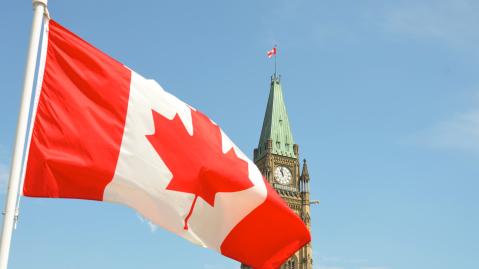
Ottawa, Canada
On 25 March 2021, Canada’s Supreme Court ruled that the federal government’s carbon pricing law is constitutional. The Supreme Court’s decision is in response to provincial legal challenges to the federal carbon pricing framework in appeals courts. Governments in three provinces – Alberta, Ontario, and Saskatchewan – argued that the regulation of greenhouse gas emissions by the federal government, instead of the provinces, was unconstitutional.
The 6-3 ruling found that the threat of climate change demands a coordinated, national approach that the Canadian federal government has the authority and jurisdiction to address. The Greenhouse Gas Pollution Price Act, passed in 2018, is Canada’s national framework for carbon pricing. Under this framework provinces and territories have the flexibility to implement their own pricing systems, so long as they meet a set of minimum stringency criteria. Compliance options include:
- An explicit price-based system (e.g., a carbon tax like that in British Columbia).
- A combination (“hybrid”) of a charge on fossil fuels and an output-based performance standard system for industrial emitters. For the baseline-and-credit systems, standards can be set based on provincial/territorial circumstances. These standards should be at levels that drive improved performance in carbon intensity and should account for best-in-class performance.
- A cap-and-trade system (e.g. the Québec cap-and-trade system)
Provinces that do not establish their own pricing systems that meet the minimum stringency criteria are subject to the federal carbon pollution pricing “backstop” system. The federal backstop system has two parts:
- A regulatory charge on fossil fuels such as gasoline and natural gas, known as the fuel charge. Generally, the fuel charge applies early in the supply chain and is payable by a registered producer or distributor. The fuel charge started at CAD 20 per tCO₂e (USD 14.91) in 2019 and increases annually by CAD 10 (USD 7.46), until it reaches CAD 50 per tCO₂e (USD 37.28) in 2022.
- A performance-based trading system for industries, known as the federal Output-Based Pricing System (OBPS). The OBPS applies to companies in the industrial and electricity sectors that emit 50,000 tCO2e or more annually. Smaller installations with annual emissions of at least 10,000 tCO₂e are able to voluntarily participate.
Currently, there are 7 provinces and territories in which the federal backstop either partially or fully applies. For more information on how each province and territory has implemented the Greenhouse Gas Pollution Pricing Act, please refer to the 2021 ICAP Status Report.

